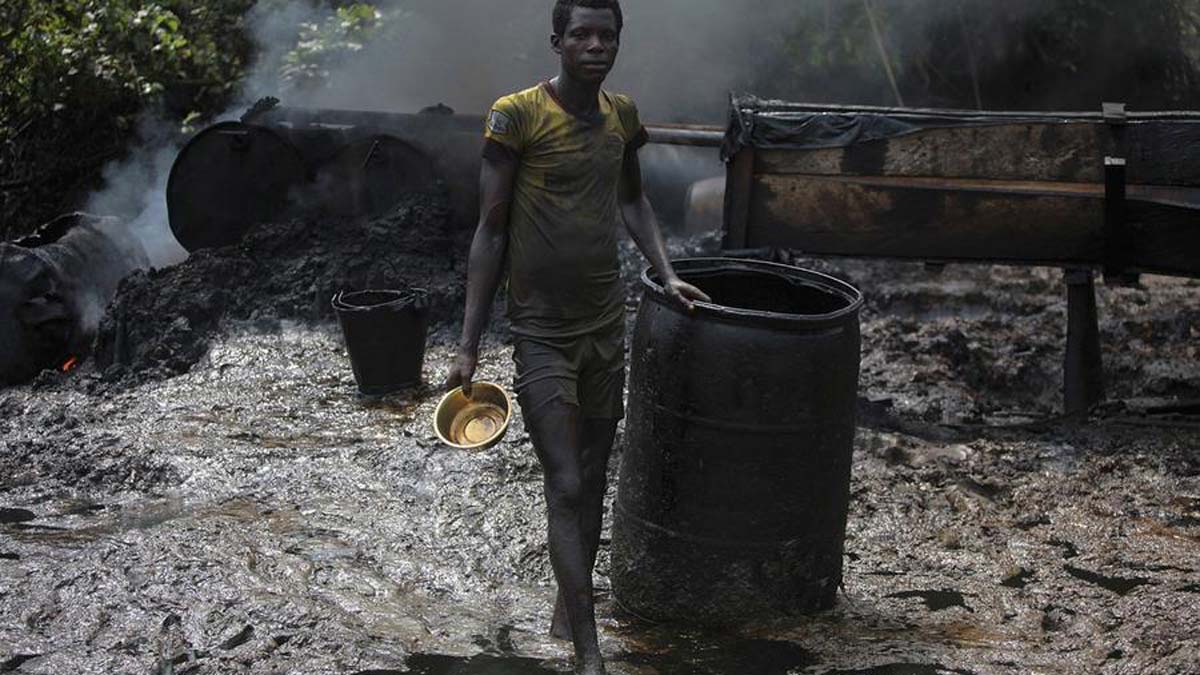 FUPRE plans to modify illegal refineries
FUPRE plans to modify illegal refineries
From the nation’s academic community yesterday came hope of improved research leading to enhanced capacity in the local refining of petroleum products to meet domestic needs.
Indeed, the Federal University of Petroleum Resources (FUPRE), Effurun, Delta State, said it was determined to make history as the first educational institution to build and run its own mini-refinery in the country.
With huge foreign reserves expended on the importation of petroleum products to augment consumption shortfalls, this novel move if replicated to gain volume has the potential to free funds for other pressing needs if successful. It will also create employment and development in the Niger Delta, thereby dousing recurring agitations.
Nigeria, the sixth largest producer of oil and gas and with a daily consumption of about 35 million litres of refined products, still grapples with local supplies, especially petrol and kerosene. It has continued to spend substantial part of its foreign reserves on importation. This is the simple most important factor that has put the naira under great pressure against other convertibles. The coming on stream of the varsity’s project will among other benefits help to deliver a strong local currency.
The four major refineries with the responsibilities of refining products have been operating far below their installed capacities, resulting in the scarcity of fuel most times.
On the proposed project, a former Executive Director at the Warri Refinery, Ezenwa Dennar, said: “It is possible for a university to build and maintain a refinery for educational purposes. But I think the question to ask is: to what scale? A university can build a refinery that can produce some litres to give the students an idea of how a refinery works.”
Commending the move, former President of Independent Petroleum Marketers Association of Nigeria (IPMAN), Chinedu Okorokwo, urged the Federal Government to assist in its execution. He also called for regulations that encourage the establishment of more of such facilities nationwide.
He charged government to aggregate oil-producing communities and set up modular refineries of around 5,000 barrels for them to buy into.This, Okorokwo stressed, would mitigate capital flight, create jobs for the youths, thus discouraging the destruction of national assets.
He stressed the need for government to open the sector to private entrepreneurs who may also come with their ideas of how to make the refineries work better.
A professor of Technology Management at the Obafemi Awolowo University, Ile-Ife, Francis Ogbimi, urged government to support individual efforts in making the country self-sufficient in petroleum refining.
His words: “The mere adoption of deregulation and privatisation cannot build refineries and increase refining capacity. Increased production is the solution to low supply, not the adoption of ideologies like capitalism or socialism/communism.
“Only seven per cent of the nations in the world practise full deregulation of the sale of petrol. The United States of America does not practise full deregulation. The American government controls the price of petrol.”
In the meantime, FUPRE said it had concluded plans to modify all the illegal facilities that dot the oil-rich Niger Delta region by building safer modular and affordable refineries with the backing of government.
According to the Vice Chancellor, Prof. Akii Ibhadode, the hazard posed by the unlicensed facilities compelled the institution to assemble its team of engineers to develop a cleaner, safer and affordable modular refining system that could be assembled with local materials.
He advocated a drastic restructuring of the national mindset so that the fledging technologies deployed by illegal refiners could be modified for the good and development of the country.
However, an industry expert and one-time Manager (Strategy and Planning), Chevron Nigeria, Mr. Yemi Emiko, noted that the capital-intensive nature of a refinery might make it a tall dream for a Nigerian university to develop one. According to him, the project is possible if designed and built on a manageable scale.He stressed that the facility requires constant maintenance even at completion to allow for continuous and efficient functioning.



